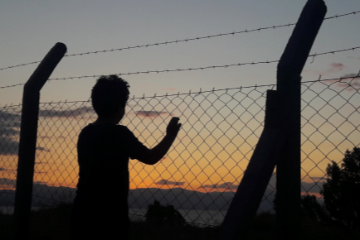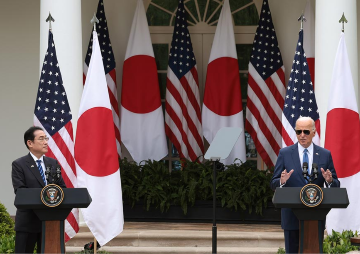The European Union and India should work closely to bring peace, stability and development in Afghanistan, Cyprus President Nicos Anastasiades said on Thursday (April 27) in Delhi.
Delivering the keynote address at the two-day India Trilateral Forum 12, organised by Observer Research Foundation, in association with the Government of Sweden and German Marshal Fund, Mr. Anastasiades said “in places like Afghanistan, India and the EU can forge closer cooperation for the benefit of the people of Afghanistan and for the cause of peace and stability in the region. Where possible, India and the EU must join forces to tackle the root causes of terrorism.”
He said India’s engagement with its neighbours and its valuable contribution to regional peace and stability signifies its crucial role in the region, and by extension the world.
Pointing out that terrorism and political instability go hand in hand, and lie at the heart of challenges that both the EU and India face, Mr. Anastasiades said Cyprus has been consistently making the case for tackling the root causes of terrorism, and this requires joining forces.
“In our region, in Syria, Iraq and Libya political instability has allowed radical organisations such as ISIL to fill in the vacuum in an absence of political leadership. The result has been chaos and an unprecedented flow of migration. Likewise, India faces significant migration flows from Afghanistan, and has suffered from terrorism,” he said.
Mr. Anastasiades said it is clear that we have no choice but to work harder and closer together to counter this menace, and the EU-India Joint Declaration on the fight against terrorism is an important step in that direction.
Besides the session with the Cyprus President, two more sessions in the 12th edition of the Forum were open while other sessions were held under Chatham House Rules. These were Mr Jayant Sinha, Minister of State for Civil Aviation, in conversation with ORF Director Sunjoy Joshi and Dr. Shashi Tharoor, MP and chairman of the Parliamentary Standing Committee on External Affairs, in conversation with Dr Samir Saran, Vice President, ORF.
“The EU – India Strategic Partnership in the 21st century: A Cyprus Perspective”
Making a presentation titled “The EU – India Strategic Partnership in the 21st century: A Cyprus Perspective, Mr. Anastasiades said that by pulling our resources together, by sharing knowledge and expertise in a host of social, economic, and security issues, “we can achieve a great deal in our Strategic Partnership in the 21st century. This necessitates a clear vision and a more focused approach”.
He pointed out that the major challenges that Europe faces are very much the same that India must address. Attacks in Brussels, Istanbul, Saint Petersburg, Dhaka, Egypt, Stockholm, London and elsewhere are a tragic proof that we are facing a sophisticated global terrorist threat, from which no country is immune, he said, adding the 2008 Mumbai terrorist attack was a stark reminder that the challenge is common.
Mr. Anastasiades said Cyprus is stepping up its efforts within the European Union, calling for a strengthened international legal framework. Cyprus, and indeed the EU, stand with India as staunch supporters of a comprehensive Convention on International Terrorism.
“Like India, we are fully aware of the fact that terrorist networks are global and require a unified response; it is in this context that we participate in the Global Coalition to Counter ISIL, and have provided means and facilities to counter terrorist organisations, for example by providing military assistance to the Lebanese Armed Forces and actively exchanging information and intelligence with partners,” he said.
Calling for increased cooperation in trade, Mr. Anastasiades said the multipliers of an FTA, in the context of an ambitious EU – India Strategic Partnership in the 21st century, are enormous. He said the EU and its Member States possess tremendous expertise and know-how, in the very areas where India wishes to take huge modernization leaps, and where Prime Minister Modi has set an ambitious agenda: Make in India, Clean India, Digital India, Smart Cities, and other significant initiatives, like the International Solar Alliance.
The Republic of Cyprus has strongly supported the signing of the FTA, and will seize the opportunity to engage actively with India in sectors like renewable energy, most notably in solar energy and natural gas, in shipping and financial services, new applications of thermal energy in medical sciences and pharmaceuticals, in advanced university research and people-to-people contacts, Mr. Anastasiades said.
Mr. Anastasiades said one of the main pillars of his visit has been to strengthen cooperation in the economic field, and his delegation included over 60 businessmen, who participated in Cyprus-India business forums in Mumbai and in New Delhi.
Mr. Anastasiades said Cyprus very much looks forward to the next EU–India Summit in New Delhi in October. Cyprus will do its utmost to ensure that it is a successful summit, he added, saying it will set the stage for the formal decisions to be made at the highest level, with a view to elevating the ambition and scope of the Strategic Partnership.
The EU is India’s largest trading partner, accounting for 13,5% of India’s overall trade, while India is the EU’s 9th largest partner, with the value of EU exports to India amounting to 37,8 billion euro in 2016.
https://www.youtube.com/watch?v=C1GhypHnmmo&t=251s
More collaboration indispensable
Welcoming the Cyprus President, ORF Director Sunjoy Joshi noted that the geographical fact remains that India and EU share a common periphery in the Middle East and our policies on intervention, migration, development and reconstruction will require close collaboration.
He said the recent contributions of the EU Naval Forces in counter piracy and HADR demonstrate the EUs role in the Indian Ocean. “European actors and the EU will need to design and implement their engagement with this ocean in close coordination with India and other actors in the region,” he said.
Mr Joshi also pointed that in the new domains like space, cyber, renewable energy and technology, our collaboration will be indispensable.
“At times like these, can the EU and India be the moderating influence in a world that desperately needs moderation? Here the most important element of our relationship will be in joining together to frame the new norms, new rules and new ideas for not only the new world order but also for a new world,” Mr Joshi said
Modi Govt’s reforms will bring in tectonic transformation
Speaking on the second day of the Forum, Minister of State for Civil Aviation Jayant Sinha said the economic reforms 3.0, undertaken by the Modi government, are much broader and of substance and would bring in a tectonic transformation in the long term.
Elaborating the reforms already undertaken by the government, Mr Jayant Sinha, in conversation with Mr Sunjoy Joshi, said the reforms are going to be game changers. He said while some analysts overestimated the short term issues, while some others underestimated the benefits in the long term.
Mr Sinha said the Modi government is both pro-poor and pro-market.“Our government is of course pro-poor. But that does not mean our government is socialist or communist. Pro-poor does not mean anti-market,” Mr Sinha said explaining how the government wants to make use of market and development for the betterment of the poor.
He said this government is very market friendly and has opened many sectors to private players. He took the examples of aviation, telecom and banking.
He said in aviation, 100 percent FDI has been allowed. He pointed out that two-thirds of the outside air-tickets from India is cornered by foreign airlines. “Where will you find such an open market in the world?” he asked.
In the banking sector, while the UPA did not issue any licence, the NDA-1 had issued 2 licences while the present government has so far issued 11.
Mr Sinha said the government has taken many steps to reduce the NPAs of the banks and the pressure of NPAs on the economy. He admitted that it will take some time for getting out of this problem, giving examples of the West which took years to struggle out of the economic crisis.
He blamed the UPA government for the “irresponsible lending” which led to the creation of such huge NPAs of the banks.
Replying to questions, Mr Sinha said he does not believe in only mass industrialisation can create jobs. He said the government’s growth model based on mass services is better suited for India. “We cannot replicate what China has done,” he remarked.
https://www.youtube.com/watch?v=3H8h1KySeH8&t=189s
Pointing out that States like Kerala, Gujarat and Goa are already in high income level, Mr Sinha said it would, however, take more than 20 years to take the whole country to the middle income level, like that of Mexico, Brazil etc. “Our effort is first to take the country to that level”, he said.
The India Trilateral Forum is the leading regular dialogue between Americans, Europeans and Indians, involved in influencing, crafting and implementing national and foreign policies. Twice each year since 2010, the Forum has convened government officials, intellectuals, media commentators and business representatives for an intimate conversation on shared political, social and economic objectives as well as implications of India’s rise for the transatlantic community.
The Forum has been held in Europe (Stockholm and London), and in three cities in India (New Delhi, Mumbai and Bengaluru). In 11 editions over seven years, the Forum has engaged over 250 key individuals.
Welcome Remarks by ORF Director Sunjoy Joshi
Keynote Address by H.E. The President of the Republic of Cyprus Mr. Nicos Anastasiades
The views expressed above belong to the author(s). ORF research and analyses now available on Telegram! Click here to access our curated content — blogs, longforms and interviews.




 PREV
PREV

